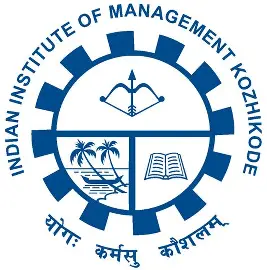The success of any organization heavily relies on building a skilled and efficient team. The responsibility of sourcing and hiring the right talent lies on the shoulders of recruitment managers.
A recruitment manager plays a pivotal role right from planning to executing the end-to-end recruitment process. They are accountable for attracting, selecting, and onboarding suitable candidates for open job positions.
Responsibilities of a Recruitment Manager
A recruitment manager has to manage the entire lifecycle of recruitment effectively. Their core duties involve:
Planning and Strategy
- Identifying current and future hiring needs and planning effective talent acquisition strategies accordingly
- Preparing job descriptions specifying roles, duties, required qualifications, and skills
- Understanding the organization’s culture and values to source candidates that align
Sourcing and Attracting Talent
- Promoting the company’s employer brand across mediums to attract potential candidates
- Posting job openings over job portals, social media platforms, company’s career page, etc.
- Leveraging referral schemes and employee advocacy initiatives
- Headhunting passive candidates by contacting them directly via social media and professional platforms like LinkedIn
Screening and Interviewing
- Reviewing and shortlisting resumes/profiles of applicants on the basis of eligibility
- Conducting preliminary video interviews to analyze applicant’s skills, strengths, career goals, salary expectations, cultural fit, etc.
- Scheduling and organizing one-on-one job interviews with hiring managers and other staff

Selection
- Comparing interview notes with the hiring manager and discussing the best candidate fit
- Extending job offers, negotiating salary packages, and addressing candidate queries
- Conducting background checks and securing candidate approval before onboarding
Onboarding
- Planning and handling all documentation requirements for smooth candidate onboarding
- Conducting orientation sessions to help new hires adjust to the work culture and environment
Essential Skills Required
The role of a recruitment manager is multi-faceted. They need to exhibit certain soft skills along with specialized recruitment skills to succeed. Taking HR courses and earning certifications can help develop expertise in many areas. These include:
- Exceptional Communication: From attracting talent to securing job offers, a recruitment manager must demonstrate strong verbal, non-verbal, and written communication abilities.
- Sourcing Expertise: Leveraging both active and passive sourcing techniques to attract a quality talent pool for current and future openings.
- Interviewing Skills: Conducting engaging preliminary interviews, identifying candidate strengths/weaknesses and cultural fit to support final hiring decisions.
- Negotiation Tactics: Convincing desired candidates to accept job offers by negotiating salary packages and selling the company’s brand.
Recruiting Manager Salary and Job Outlook
If you’re considering a career as a recruitment manager, the salary outlook is pretty promising. Recruitment managers earn an average of $77,862 annually, but that number tends to climb with more experience under your belt. Those working for top companies in major metropolitan hubs can hit the salary jackpot. The job opportunities for recruitment managers are expanding big time. With today’s tight labor market and skills gap, there’s a huge demand across many industries for human resources pros who can find and attract top talent.
Conclusion
The recruitment manager holds a critical role in any organization’s talent acquisition strategy and building a skilled workforce. They oversee the entire hiring process from planning to execution, including employer branding, job advertising, screening resumes, tracking recruitment metrics, etc.
Recruitment managers require exceptional communication abilities, sourcing expertise, and negotiation skills to attract and convince top talent. With the high demand for recruitment manager jobs across various industries, polished skills in these areas are essential to stand out in the applicant pool and secure a role in managing an organization’s hiring process.
FAQs
1. Is it necessary for a recruitment manager to have a degree in Human Resources (HR)?
A recruitment manager doesn’t need to have a specialized HR degree. However, they must showcase a strong understanding of established HR systems and processes.
2. How is the role of a recruitment manager different from that of an HR generalist?
While HR generalists oversee a wide spectrum of HR functions like talent acquisition, development, compensation, policymaking, etc., recruitment managers specifically focus on end-to-end talent acquisition.
3. What types of organizations typically hire recruitment managers?
From large-scale multinational companies and mid-sized enterprises to niche startups and firms providing HR consulting/recruitment services – recruitment managers are core members across organizational structures.
4. How can one progress into senior recruitment roles?
Gaining well-rounded experience spanning different facets like corporate recruitment, agency resourcing, RPO, executive search etc. allows expanding domain expertise.
5. What is the future outlook for a career as a recruitment manager?
The consistent rise in demand for skilled talent across industries translates into attractive growth prospects for recruitment managers.






























